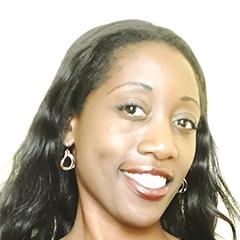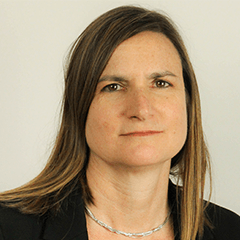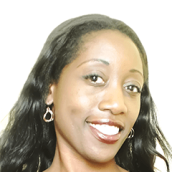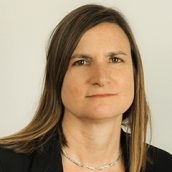A chat with two new Board members
Micheline Ntiru and Tania Songini have recently joined the OPM Board.
Recently, there were some new additions to the OPM Board, which provides OPM with strategic guidance and governance oversight. We had a chat with Micheline Ntiru and Tania Songini, who are among the new Board members.
Where are you from and what was your first job?

MICHELINE NTIRU: I am from Uganda and I was born in Nairobi and lived in more than seven countries. I really feel as if I am a citizen of this world, with Johannesburg, New York, Nairobi, and Sao Paulo cities that I consider 'home.'

TANIA SONGINI: I am half-Italian (father) and half-English (mother) and I grew up in Tanzania, Nigeria, Sudan and Italy (I’m a Roman!). My first job was in Germany working for Siemens as a Commercial Bid Manager and Project Controller in their Logistics Automation business.
How did you get involved in international development and what has been your experience with the sector?
MN: When I lived in Nairobi, and then New York, I knew a lot of people at the United Nations including my parents. While studying Nutrition Policy and Global Health, I suppose that I knew that the natural career pattern was to work with NGOs or in the UN system. I got an internship to work on a food security programme in Madagascar and continued to work in international development for another ten years. I then switched to work in the private sector but have always kept involved in international development.
TS: Having grown up in Africa, the issue of development and growth has always been close to my heart. In 2003 I established a small charity with colleagues at Siemens which still today funds the salaries of teachers, social workers, and psychologists helping street and working children in the markets of Southern Quito, by providing education and healthcare assistance.
After leaving Siemens in 2015, I took on my first full-time role in international development as finance and operations director with the International Rescue Committee (IRC) Europe, at the time of the mass refugee influx into Europe from Syria and other Middle Eastern countries. An eye-opening experience. I am also a trustee of Bond, the British Association of NGOs working in international development.
Could you name a country/city you’ve visited with work that you’d highly recommend?
MN: I love Maputo and Lima, both by the ocean. Maputo has great seafood and a quaint, laid-back vibe. In Lima, the neighbourhoods Miraflores and San Isidro are pretty. Peruvian food is incredible, with fresh and indigenous ingredients and the people amiable.
TS: As part of the work I do for ViaNinos, the charity assisting street and working children, I visit Ecuador at least every other year and have got to know the country well. For those who don’t know Latin America, it’s a great introduction to this subcontinent, as it offers the perfect blend of the region’s main ingredients: Andes and indigenous culture, Colonial city gems, a beautiful coast, and the unique Galapagos islands.
I never cease to be surprised by the friendliness, hospitality and kindness of Ecuadorians from all walks of life, even amongst the very poor and disadvantaged families we work with in the markets of Southern Quito.
What do you believe are the most pressing issues in international development in 2018?
MN: Oh, we have so many challenges. Financial accountability of governments and donors alike, good governance, climate change, unemployment, inequality, immigration... These top my list.
TS: The current migrant influx from Africa across the Mediterranean (and the same can be said about Latin Americans trying to enter the US) is symptomatic of the hopelessness of millions of people in less developed countries, who are prepared to risk their lives in pursuit of a possible better future.
The focus in my view today more than ever needs to be on helping create/enabling an environment that offers economic opportunities in their own countries to young people in Africa, Latin America, and southern Asia, with a strong focus on making a good education and basic healthcare (and enabling infrastructure such as energy, clean water, communication) available to all. These need to be the priorities, coupled with a continued effort to foster basic governance standards and fight corruption, which is still in many of the countries concerned a major roadblock to fair and inclusive development.


